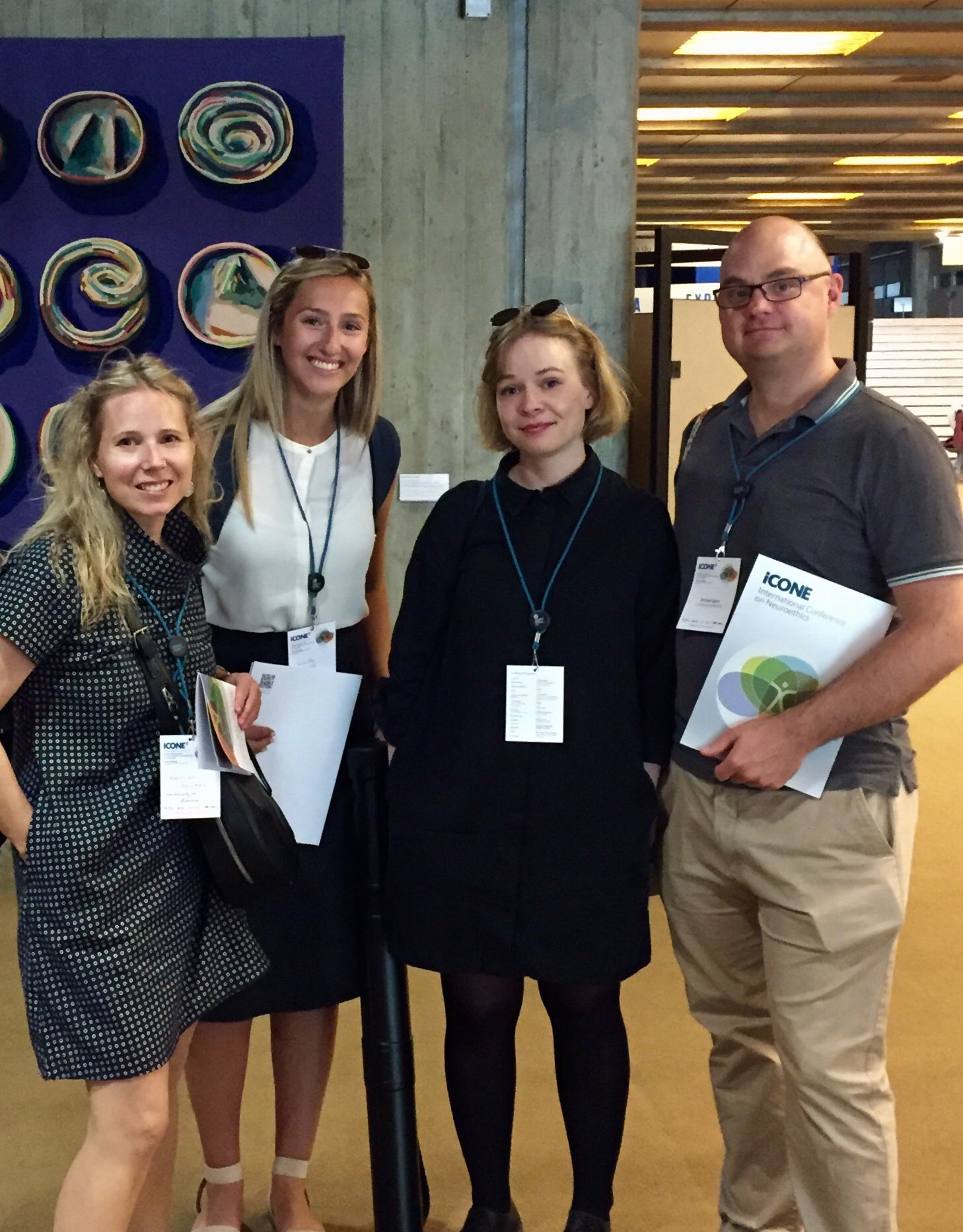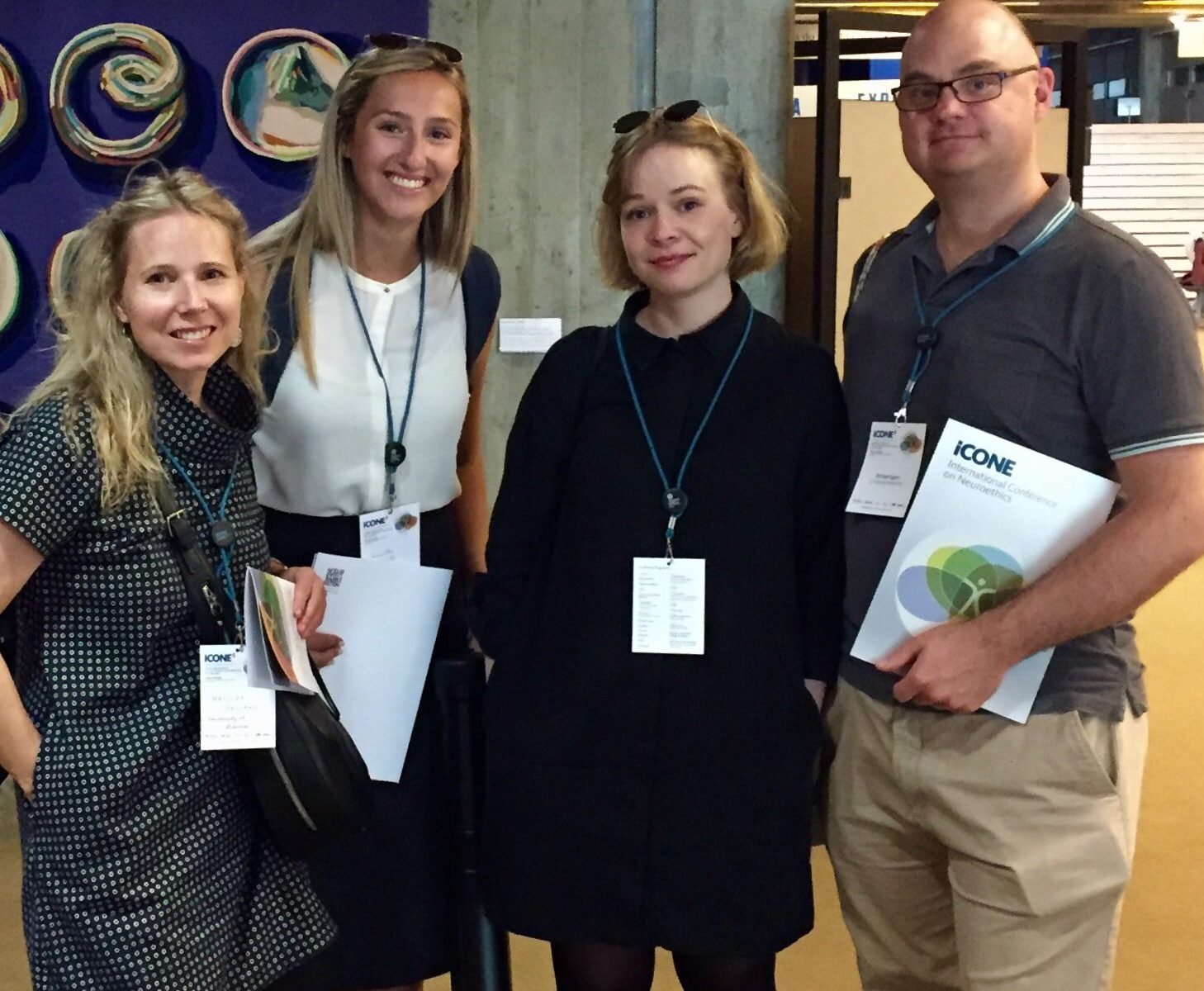The A-BRAIN project gathered in Lisbon in late September to participate in the International Conference on Neuroethics (ICONE5) and the ERA-NET midterm progress reporting event. At the ICONE conference, international names in neuro- and bioethics, such as Eric Racine and Kathinka Everes discussed current challenges in view of recent developments and discoveries in neuroscience.
From the A-BRAIN, Doris Ochterbeck contributed with colleagues Matilda Hellman and Sarah Forberger with the poster Ethical Implementations of Brain-based Explanations for Addiction: A Survey Among Scientists (please, click on title for viewing the poster)
Michael Egerer and Samantha Rundle participated with the poster Addiction services’ clients’ perspective on the BDMA
Rundle wins poster session
On the evening of the 17th other posters of the A-BRAIN consortium were presented in the joint poster session of the two events:
Elroy Boers, Mohammad Afzali & Patricia Conrod: A longitudinal study on the relationship between screen time and alcohol-related social normative perceptions in adolescence
Matilda Hellman & Saara Salmivaara: Spinning the Story of Addiction in the Brain
Samantha M. Rundle & Christian S. Hendershot: The Brain Disease Model of Addiction and Implications for Public Stigma: A Cross-National Study
Three posters were declared winnes of the ERA-NET’s poster session, of which Rundle & Hendershot’s contribution was one. Congratulations!
The project is finding its contours
The status and progress of the A-BRAIN progress was presented by PI Matilda Hellman for the ERA-NET funders and fellow projects on the 18th of September. The power point can be found HERE.
On the whole, and in view of other work in neuroethics, the A-BRAIN initiative seems to be unique: we have not been able to find other projects that inquire into how the adherence to certain epistemic dogmas are used for orienting people and weighed in upon not only in a view of classic ethical deliberation on autonomy/ freedom of the individual perspective, but also in view of a collective morale and accountability, as well as the affected sensitive / vulnerable populations.
With our work we hope to be able to answer some questions regarding what is ethically justifiable in view of the knowledge, expectations and hopes invested in the Brain Disease Model of Addiction by stakeholders and the affected populations.
Below: Picture of happy attendees in the ICONE conference. From left: Matilda Hellman, Samantha Rundle (with the prize winning poster in her hand), CEACG and A-BRAIN coordinator Saara Salmivaara and Michael Egerer.


